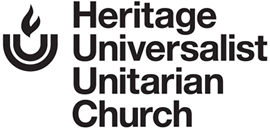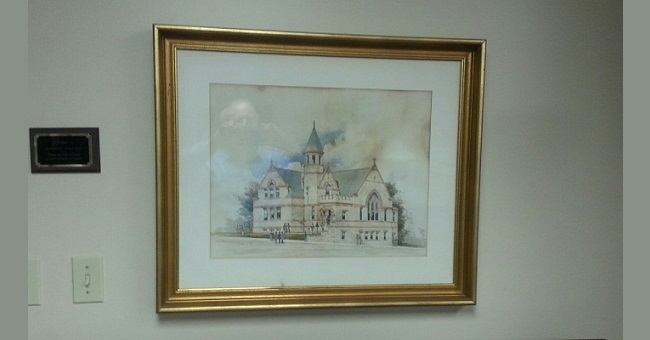by Mike Roberts, Church Historian
This article gives us insight into the religious philosophy of Unitarian Universalism in 1963. This comes from a handout to visitors published by our church in that year but with no attribution as to authorship.
“We recognize the need and right of every person to work out his own meaningful faith. The unique journey each person takes through life is at the heart of our approach to religion. We have no creed to which everyone is required to conform. We are eager to know what humanity has learned through centuries of venturing and suffering, but each of us is free to believe what persuades him and to follow truth as he discovers it.
“We are convinced that people of differing beliefs can worship and think and work together toward making human life more precious and meaningful. Our unity is in the way we approach the great questions of life, the way we relate ourselves in fellowship for the quest of life-giving meanings. We respect each person’s gropings and convictions, expecting him only to join in the honest quest. We share our wondering and experience without attempting to impose our conclusions as the only genuine answer. We are open to new knowledge and aspiration. This makes religion not something old to be revered, but something ever new and wonderfully alive.
“Our fundamental principle is freedom of belief. We do not ask our people to subscribe to any creed or doctrinal statement. Why not? Because in religion, as in any other area of life, truth is never settled and final. Churches, Bibles, creeds, theologies and philosophies are the creation of men who exercised their freedom in arriving at their own conclusions. We want to know what they may have to say to us, but we use our own minds and hearts in arriving at our own understanding. We are on a continuing search for truth which emerges as we grow wiser and are better informed.
“Religion comes alive for us in experiences which concern us in the depth of our beings. The dearest and deepest in human life can never be appreciated or even understood by the mind alone. The shock of beauty and mystery—the shout of joy and the pain of anguish—the yearning for inner strength, for love, for justice, are the source of our search for meaning. We are stirred by values and aspiration, by the great qualities of awe and wonder and reverence, by the challenges which come to us to change our lives. We know the hunger for a deep undergirding sense of at-home-ness in the universe, the feeling of kinship with something inconceivably vast and dependable. We feel that in some way the God of our experience is related to the rest of the universe. Just how this is so, there are as many answers as there are minds and hearts that wonder. Our faith develops as we encounter these surmises and in honesty examine our own.
“We subject our beliefs to the test of reason. We use our intelligence creatively and critically. We cherish a deep reverence for all men, in whatever time or place, who have in their lives and teaching sought to bring mankind to a fuller realization of life’s meanings. We draw inspiration from the wisdom of religious and intellectual movements that are the heritage of man. The Bible, for example, is the record of the religious life of a people, set down over a long period of time, by a great many writers. We find profound insights in these writings, but we also find significant values in other writings and in our own experience. Religious truth does not depend upon its being Hebrew or Christian or Buddhist or Hindu, but upon its being trustworthy. We test every belief and weigh it on the evidence in its support.
“We have faith in human nature and human possibilities. We affirm the ability of man to learn, to discipline his life by what he discovers to be true. We affirm his power to bring beauty and justice and brotherhood into being as he grows in skill and wisdom. This, as we see it, is the faith of democracy— the conviction that man is capable of cooperating with his fellows and of working out satisfactory answers to human problems.
“We affirm the principle of love, of understanding human beings as essentially like ourselves, of sensing their hurts and griefs and being willing to assume responsibility for their welfare. The sense of community is indispensable even to self-realization. Service to others is an outflowing of our religious concern.
“We understand religion to be the way we live our lives. It is what happens to us inwardly and how we conduct ourselves among our fellows. We find religion wherever men reverence life, wherever men are seeking truth and being truthful, wherever men are working together to achieve a better world, wherever men are doing justly and loving kindness and walking in integrity.”
Sketch of our congregation’s home in 1963.

